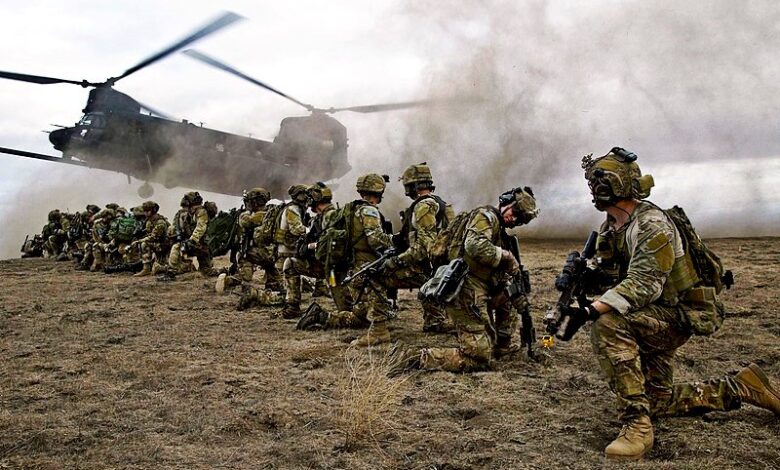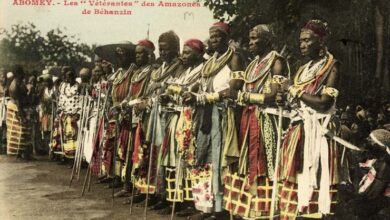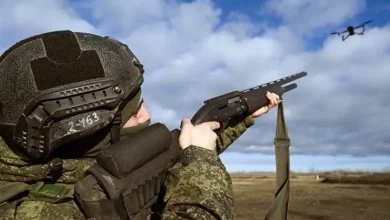28 Правил рейнджера
В засаде ждать, когда враг приблизится так, чтобы огонь был вдвойне устрашающим, после обстрела начать рукопашную.

«28 Правил рейнджера» — набор правил, первоначально установленных полковником Робертом Роджерсом в 1757 году в ходе Войны с французами и индейцами (1755—1763).
Правила партизанской войны для отряда в 600 человек, лично отобранных Роджерсом, явились обобщением тактики индейцев с некоторыми дополнениями и были революционными для армии того времени. Совместно с интенсивной физической и стрелковой подготовкой они позволили создать мобильное, отлично тренированное подразделение, способное выживать и действовать самостоятельно в течение длительного периода времени. Эти правила преподаются рейнджерам армии США и в настоящее время.

Первоначальный План Дисциплины из дневника Роберта Роджерса появился в 1759 году и предназначался «рейнджерам Роджерса». Современная укороченная и упрощённая версия используется в 75-м полку рейнджеров с 1950 года по настоящее время.

Вот эти, современные, правила:
- Рейнджер действует по законам войны.
- Небольшая группа на марше строится в один ряд с достаточной дистанцией, чтобы один выстрел не убил двоих.
- По мягкому грунту группа идёт след-в-след. Ночью половина солдат бодрствует, пока другая половина спит.
- По прибытии на место следует отправить вперёд разведчиков, чтобы избежать засад и ловушек.
- Пленных держать и допрашивать отдельно друг от друга.
- Большая группа идет несколькими колоннами с охранением впереди и сзади.
- В случае нападения ложиться или приседать, когда стреляет противник, и вставать, чтобы выстрелить самому. На флангах сила должна соответствовать силе флангов противника. При отступлении организовать прикрытие.
- Преследуя врага, держать фланги усиленными, не позволять ему занять высоты, где он сможет развернуться и биться.
- При отступлении стрелять и отходить поочередно, чтобы враг шёл на постоянный огонь.
- Если противник намного сильнее, отряд следует распустить и собрать в установленном заранее месте. Это смешает порядок преследующих и позволит встретить их организованно.
- При атаке сзади солдаты просто разворачиваются, чтобы последний стал первым. При атаке с одного фланга другой действует как задний.
- Контратаку начинать на возвышенности, где наступление врага замедлено.
- В засаде ждать, когда враг приблизится так, чтобы огонь был вдвойне устрашающим, после обстрела начать рукопашную.
- На привале охрана должна быть выставлена на такой дистанции, чтобы защитить лагерь, не раскрывая его расположение. Каждый караул состоит из 6 солдат, 2 из которых не спят в любой момент времени.
- Общий подъём перед рассветом, так как это обычное время для нападения врага.
- Если утром обнаружен превосходящий противник, атаковать нужно вечером, чтобы скрыть количество своих солдат и было легче отступать.
- Перед уходом из лагеря изучить окрестности, чтобы проверить, велось ли врагом наблюдение ночью.
- В месте, где набираете воду, поставить охрану, чтобы тропа была прикрыта и не было неожиданностей.
- Не переходить реку обычным бродом, за которым следит противник.
- Не обходить озёра слишком близко к берегу, чтобы враг не прижал к воде.
- Если враг идёт следом, сделай круг и напади на той же тропе.
- Возвращайся из разведки другой дорогой, так как враг мог заметить выход и ждёт вас уставшими.
- Преследуя врага, иди другой тропой, обойди и устрой засаду в узком или неожиданном месте.
- Водным путём отправляйся ночью, чтобы не обнаружить себя.
- В цепочке лодок должна быть связь через одну, чтобы ночью не потеряться.
- В каждой лодке один человек следит за берегом, ищет огонь или движение.
- Устраивая засаду у реки или озера, подготовь группу на другом берегу там , куда поток будет выносить противника.
- Когда сила врага не известна – отправь разведку. Чтобы принять решение – атаковать или отступать – может понадобиться целый день. Установи знаки, как отличать врагов от своих в темноте. Если враг напал в неудобном месте, лучше рассеяться как при беспорядочном отступлении, в подготовленном месте следует развернуться и ждать. На близкой дистанции открыть огонь и пойти в рукопашную с топорами. Затем атакуют фланги, обращая врага в бегство.
Roger’s Rangers Rules or Plan of Discipline
Major Robert Rogers — 1757
(Commander of Roger’s Rangers)
This is the original version —
1. All Rangers are to be subject to the rules and articles of war; to appear at roll-call every evening on their own parade, equipped each with a firelock, sixty rounds of powder and ball, and a hatchet, at which time an officer from each company is to inspect the same, to see they are in order, so as to be ready on any emergency to march at a minute’s warning; and before they are dismissed the necessary guards are to drafted, and scouts for the next day appointed.
2. Whenever you are ordered out to the enemy’s forts or frontiers for discoveries, if your number be small, march in a single file, keeping at such a distance from each other as to prevent one shot from killing two men, sending one man, or more, forward, and the like on each side, at the distance of twenty yards from the main body, if the ground you march over will admit of it, to give the signal to the officer of the approach of an enemy, and of their number, & c.
3. If you march over marshes or soft ground, change your position, and march abreast of each other, to prevent the enemy from tracking you (as they would do if you marched in a single file) till you get over such ground, and then resume your former order, and march till it is quite dark before you encamp, which do, if possible, on a piece of ground that may afford your sentries the advantage of seeing or hearing the enemy at some considerable distance, keeping one half of your whole party awake alternately through the night.
4. Some time before you come to the place you would reconnoitre, make a stand, and send one or two men in whom you can confide, to look out the best ground for making your observations.
5. If you have the good fortune to take any prisoners, keep them separate till they are examined, and in your return take a different route from that in which you went out, that you may the better discover any party in your rear, and have an opportunity, if their strength be superior to your, to alter your course, or disperse, as circumstances may require.
6. If your march in a large body of three or four hundred, with a design to attack the enemy, divide your party into three columns, each headed by a proper officer, and let these columns march in single files, the columns to the right and left keeping at twenty yards distance or more from that of the center, if the ground will admit, and let proper guards be kept in the front and rear, and suitable flanking parties as a due distance as before directed, with orders to halt on all eminences, to take a view of the surrounding ground, to prevent your being ambushed, and to notify the approach or retreat of the enemy, that proper dispositions may be made for attacking, defending, & c, and if the enemy approach in your front on level ground, form a front of your three columns or main body with the advanced, guard, keeping out your flanking parties, as if you were marching under the command of trusty officers, to prevent the enemy from pressing hard on either of your wings, or surrounding you, which is the usual method of the savages, if their number will admit of it, and be careful likewise to support and strengthen your rear guard.
7. If you are obliged to receive the enemy’s fire, fall or squat down, till it is over, then rise and discharge at them. If their main body is equal to yours, extend yourselves occasionally; but if superior, be careful to support and strengthen your flanking parties, to make them equal with theirs, that if possible you may repulse them to their main body, in which case push upon them with the greatest resolution, with equal force in each flank and in the center, observing to keep at a due distance from each other, and advance from tree to tree, with one half of the party before the other ten or twelve yards. If the enemy push upon you, let your front fire and fall down, and then let your rear advance thro’ them and do the like, by which time those who before were in front will be ready to discharge again, and repeat the same alternately, as occasion shall require; by this means you will keep up such a constant fire, that the enemy will not be able easily to break your order, or gain your ground.
8. If you oblige the enemy to retreat, be careful, in your pursuit of them, to keep out your flanking parties, and prevent them from gaining eminences, or rising grounds, in which case they would perhaps be able to rally and repulse in their turn.
9. If you are obliged to retreat, let the front of your whole party fire and fall back, till the rear has done the same, making for the best ground you can; by this means you will oblige the enemy to pursue you, if they do it at all, in the face of a constant fire.
10. If the enemy is so superior that you are in danger of being surrounded by them, let the whole body disperse, and every one take a different road to the place of rendezvous appointed for that evening, which must every morning be altered and fixed for evening ensuing, in order to bring the whole party, or as many of them as possible, together, after any separation that may happen in the day; but if you should happen to be actually surrounded, form yourselves into a square, or if in the woods, a circle is best, and, if possible, make a stand till the darkness of the night favours your escape.
11. If your rear is attacked, the main body and flankers must face about to the right or left, as occasion shall require, and form themselves to oppose the enemy, as before directed; and the same method must be observed, if attacked in either of your flanks, by which means you will always make a rear of one of your flank-guards.
12. If you determine to rally after a retreat, in order to make a fresh stand against the enemy, by all means endeavour to do it on the most rising ground you can come at, which will give you greatly the advantage in point of situation, and enable you to repulse superior numbers.
13. If general, when pushed upon by the enemy, reserve your fire till they approach very near, which will them put them into the greater surprise and consternation, and give you an opportunity of rushing upon them with your hatchets and cutlasses to the better advantage.
14. When you encamp at night, fix your sentries in such a manner as not to be relieved from the main body till morning, profound secrecy and silence being often of the last importance in these cases. Each sentry, therefore, should consist of six men, two of whom must be constantly alert, and when relieved by their fellows, it should be done without noise; and in case those on duty see or hear anything, which alarms them, they are not to speak, but one of them is silently to retreat, and acquaint the commanding officer thereof, that proper dispositions may be made; and all occasional sentries should be fixed in like manner.
15. At the first dawn of day, awake your whole detachment; that being the time when the savages choose to fall upon their enemies, you should by all means be in readiness to receive them.
16. If the enemy should be discovered by your detachments in the morning, and their numbers are superior to yours, and a victory doubtful, you should not attack them till the evening, as then they will not know your numbers, and if you are repulsed, your retreat will be followed by the darkness of the night.
17. Before you leave your encampment, send out small parties to scout round it, to see if there be any appearance or track of an enemy that might have been near you during the night.
18. When you stop for refreshment, choose some spring or rivulet if you can, and dispose your party so as not to be surprised, posting proper guards and sentries at a due distance, and let a small party waylay the path you came in, lest the enemy should be pursuing.
19. If, in your return, you have to cross rivers, avoid the usual fords as much as possible, lest the enemy should have discovered, and be there expecting you.
20. If you have to pass by lakes, keep at some distance from the edge of the water, lest, in case of an ambuscade, or an attack from the enemy, when in that situation, your retreat should be cut off.
21. If the enemy pursue your rear, take a circle till you come to your own tracks, and there form am ambush to receive them, and give them the first fire.
22. When you return from a scout, and come near our forts, avoid the usual roads, and avenues thereto, lest the enemy should have headed you, and lay in ambush to receive you, when almost exhausted with fatigues.
23. When you pursue any party that has been near our forts or encampments, follow not directly in their tracks, lest you should be discovered by their rear guards, who, at such a time, would be most alert; but endeavour, by a different route, to head and meet them in some narrow pass, or lay in ambush to receive them when and where they least expect it.
24. If you are to embark in canoes, bateaux, or otherwise, by water, choose the evening for the time of your embarkation, as you will then have the whole night before you, to pass undiscovered by any parties of the enemy, on hills, or other places, which command a prospect of the lake or river you are upon.
25. In paddling or rowing, give orders that the boat or canoe next the sternmost, wait for her, and the third for the second, and the fourth for the third, and so on, to prevent separation, and that you may be ready to assist each other on any emergency.
26. Appoint one man in each boat to look out for fires, on the adjacent shores, from the numbers and size of which you may form some judgement of the numbers that kindled them, and whether you are able to attack them or not.
27. If you find the enemy encamped near the banks of a river, or lake, which you imagine they will attempt to cross for their security upon being attacked, leave a detachment of your party on the opposite shore to receive them, while, with the remainder, you surprise them, having them between you and the lake or river.
28. If you cannot satisfy yourself as to the enemy’s number and strength, from their fire, & c. conceal your boats at some distance, and ascertain their number by a reconnoitring party, when they embark, or march, in the morning, marking the course they steer, & c. when you may pursue, ambush, and attack them, or let them pass, as prudence shall direct you. In general, however, that you may not be discovered by the enemy on the lakes and rivers at a great distance, it is safest to lay by, with your boats and party concealed all day, without noise or show, and to pursue your intended route by night; and whether you go by land or water, give out parole and countersigns, in order to know one another in the dark, and likewise appoint a station for every man to repair to, in case of any accident that may separate you.
Such in general are the rules to be observed in the Ranging service; there are, however, a thousand occurrences and circumstances which may happen that will make it necessary in some measure to depart from them and to put other arts and stratagems in practice; in which case every man’s reason and judgment must be his guide, according to the particular situation and nature of things; and that he may do this to advantage, he should keep in mind a maxim never to be departed from by a commander, viz. to preserve a firmness and presence of mind on every occasion.
— From JOURNALS OF MAJOR ROGER ROGERS (as published in 1765)




